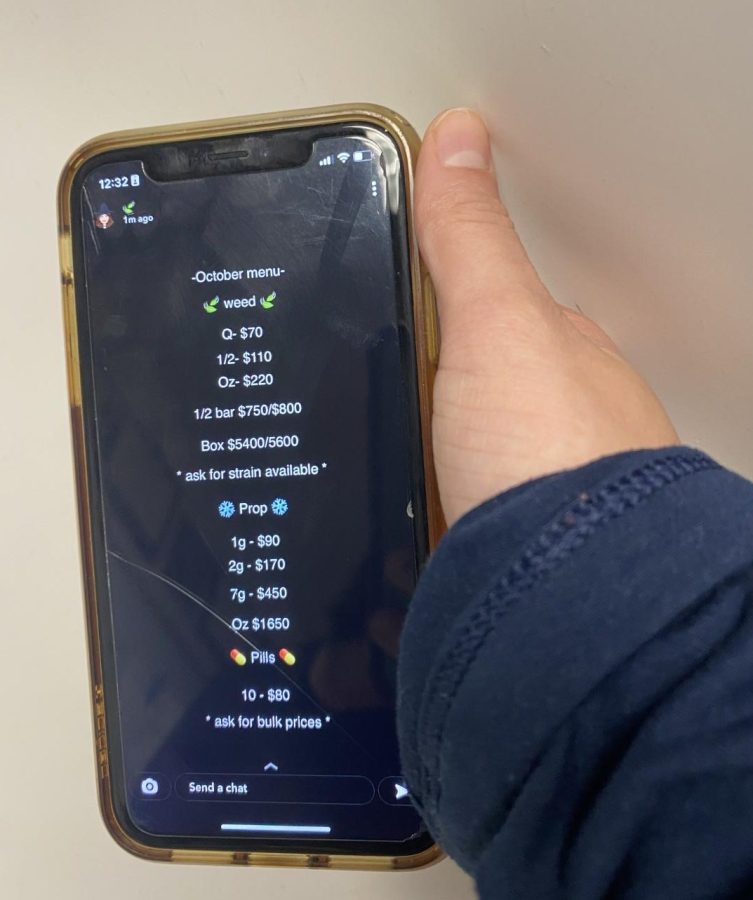California’s Bill To Protect Kids Misses The Mark
After recurring issues and concerns from parents about social media, California Congress attempts to counter these concerns with this bill.
Snapchat accounts selling drugs are the target of new bills designed to protect kids.
October 31, 2022
When one deadly click causes the death of numerous minors, people desperately search to find answers. The answer can be found within social media. These four heartbreaking teen deaths all link back to one pill purchase, provided by the easy drug access of Snapchat. Parents beg for these social media platforms to provide some type of responsibility and safety stability.
“Unfortunately it’s hard not to fall victim to the constant advertisement and promotion of illegal activities, specifically drugs, on Snapchat. Almost every time I open Snapchat someone is promoting,” Steven Niese (‘25) said.
Last year, the U.S. Congress summoned two of the world’s leading social media platforms, Snapchat and TikTok, to explain their weak attempts at providing safety measures to protest minors using their services. During the hearing, Biden took note of the issue and swore to “hold social media platforms accountable for the national experiment they’re conducting on our children for profit.”
In response to the recurring concerns from the people and parents about their children’s usage of social media, this July, California Governor Gavin Newson signed a bill that completely alters online privacy and minors’ experiences with social media services, games, and other networks. The California Age-Appropriate Design Code Act is designed to change the layouts of online services in order to cater towards children’s best interests.
The safeguards are primarily focused on limiting the amount of interaction minors can have with strangers on the internet, taking away the widely adored aspect of social media: online chatting. According to a May 2021 American Survey by the American Enterprise Institute, 39% of Americans have friends they strictly met online and only chat on the internet through.
The California State Legislature received much backlash from the tech industry on this, as they claimed the bill was too far-reaching or broad and taking away online chatting would be especially harmful to their marketing. However, the tech industry isn’t the only one with concerns on how the bill will affect their services.
The narrowing aspect of this bill, the age verification services, are also raising suspicion. Adults are nervous that the age-verification policies which consist of mobile phone account record, credit card reference agencies, and other private sector databases will be overly invasive and the sensitive details the sites will need to obtain are potentially a violation of privacy.
In response, the California legislation said they will still require age verification, but they will prohibit the requirement of sensitive information, like tracking of precise locations.
This California measure could be taken outside of just state wide and be implied around the nation, being that an international company can’t have different rules in different states, so requirements in California could become nation-wide. The measure would apply to social networks, gaming platforms, electronic toys, and even digital school applications, which are all commonly used by those under 18.
After Britain initiated online restrictions for minors, which started the sequence of apps like Tiktok, Snapchat, Google, and many more to create safeguards, TikTok has prohibited the ability for strangers to comment, duet, or download any videos of users under 16.
Snapchat has also decided to take action and implemented safety features, via quick add. This new guard applies to every user under 18. To add a minor from quick add, the underage user has to have either their phone number or a certain number of mutual friends in order to respond to the friend request. With this new feature, California Congress is hoping to cut back on situations like drug trafficking, catfishing, and bullying on such popular platforms.
A privacy bill developed in July by the Senate Committee on Commerce, Science & Transportation that targets embargoing ads marketed towards children and minors, as well as online services that specifically target the topics of suicide and eating disorders.
However, many believe the Senate is targeting the wrong problem as they shouldn’t be going for the ads being promoted towards minors, but rather the minors’ ability to market these illegal activities to one another.
“Although I think these features are a step in the right direction, I don’t think they will have the impact the bill is hoping for. I don’t think the ads are the problem here, we are.” Kyler Richards (‘25) said.



